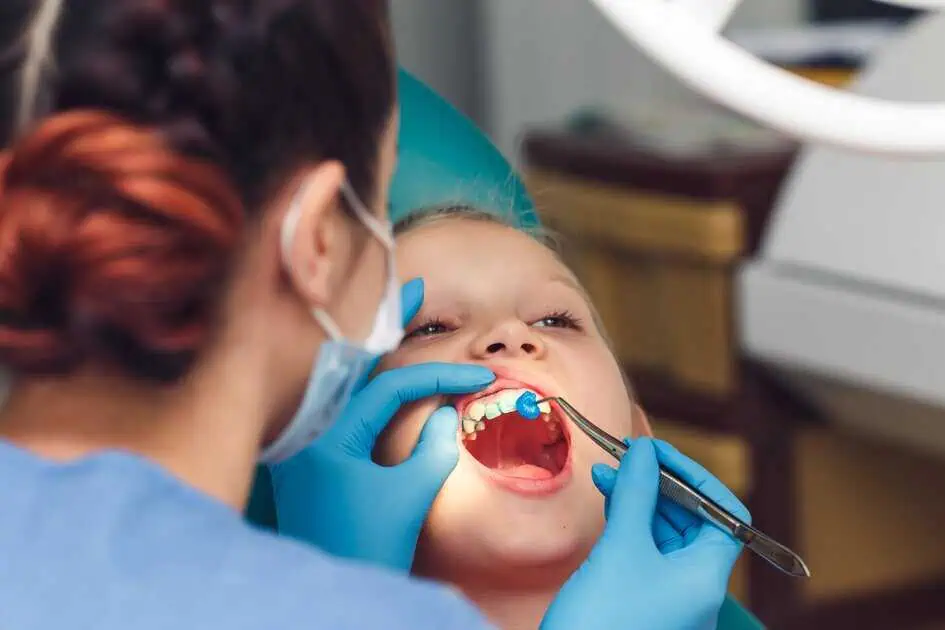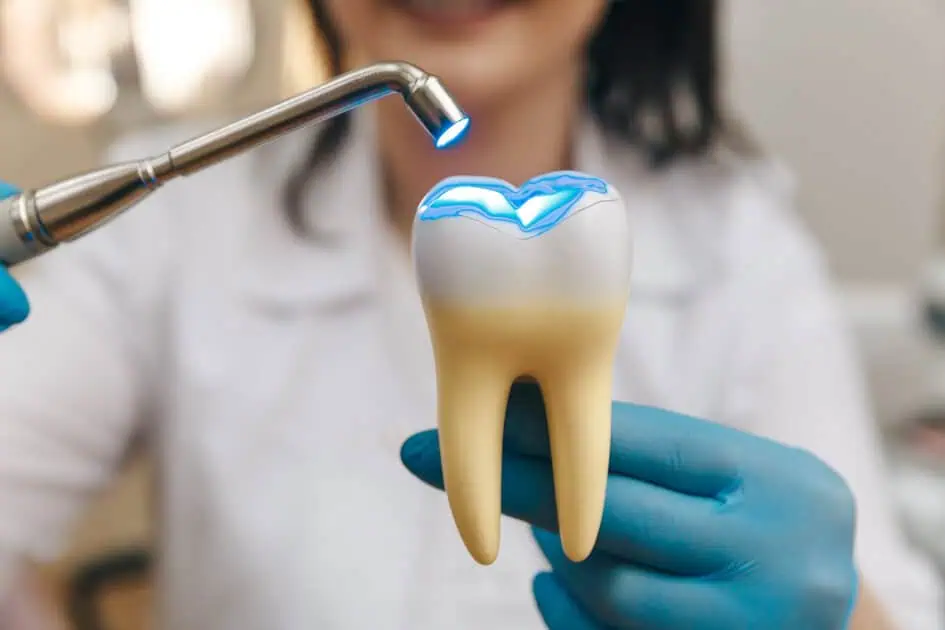Dental crowns are tooth-shaped caps positioned over a damaged tooth to protect and strengthen it. Crowns can be made from diverse materials, including ceramics, porcelain, gold, and base metal alloy. Choosing the right dental crown type can depend on several factors, including cost, durability, aesthetics, and personal preferences. This article will analyze the different types of dental crowns available and the factors to consider when picking the right one for your dental needs.
Do You Need A Dental Crown?
Before we delve into the different types of dental crowns available, it’s essential to understand when a dental crown may be necessary. Dental crowns are typically used to mend a tooth that is severely damaged, decayed, or weakened. Various factors, such as tooth decay, injury, or root canal treatment, can cause this.
You must schedule an appointment with your dentist if you are experiencing symptoms such as tooth pain, sensitivity, or a visible crack or chip in your tooth. During your visit, your dentist can assess the condition of your tooth and determine if a dental crown is the appropriate treatment option for you.
In some cases, a dental filling or other dental restoration may be sufficient, but a dental crown may be necessary in more severe cases to protect and restore the tooth. Understanding the signs and symptoms of a damaged tooth and seeking prompt dental care can help ensure the best possible outcome for your oral health.
Types Of Dental Crowns
Several types of dental crowns are available, each with unique benefits and drawbacks. The most common types of dental crowns include ceramic, porcelain-fused-to-metal, gold, and base metal alloy.
- Ceramic crowns are popular due to their natural appearance and ability to blend in with the surrounding teeth. They are also highly durable and resistant to wear and tear. However, ceramic crowns can be more expensive than other types and may need to be stronger than metal-based crowns.
- Porcelain-fused-to-metal crowns are another common type of dental crown. They are made by fusing a porcelain exterior with a metal interior, which provides strength and durability while allowing for a natural appearance. However, these crowns can be prone to chipping or cracking over time, and the metal portion may become visible if the gum line recedes.
- Gold alloy crowns are famous for back teeth due to their strength and durability. They also require less natural tooth structure to be removed during preparation, which can benefit patients who have already lost a significant amount of tooth structure. However, the bright gold color may only suit some’s aesthetic preferences.
- Base metal alloy crowns are another strong and durable option. They are typically made from an assortment of non-noble metals, which makes them more affordable than other types of crowns. However, they may not be as aesthetically pleasing as other options, and they can cause some gum irritation or allergic reactions in some patients.
Factors To Consider When Choosing A Dental Crown
When choosing a dental crown, there are several factors to consider to make an informed decision.
- Cost: The price of different types of crowns can vary significantly. Ceramic crowns are more expensive than metal-based crowns, but they are a better choice for patients who prioritize aesthetics. Metal-based crowns may be a more affordable option for patients who prioritize durability and strength.
- Location of the tooth: Crowns for front teeth may require a more natural-looking material such as ceramic or porcelain-fused-to-metal. Back teeth may need a more robust and durable material, such as gold or base metal alloy.
- Personal preferences and concerns: If you have a history of allergies or sensitivities, a non-metal option, such as a ceramic crown, may be better. Similarly, if you prefer a specific look or feel, discussing your options with your dentist to find the best fit for you is essential.
Ultimately, deciding which dental crown to choose should be made in consultation with your dentist, who can assess your needs and make recommendations based on your oral health and personal preferences.
Dental Crown Procedure
The dental crown procedure typically involves two appointments with your dentist. During the first appointment, your dentist will condition the damaged tooth by removing any decay and shaping the tooth to make room for the crown. If the tooth is harshly impaired, your dentist may need to build it with a filling material to support the crown.
Next, your dentist will take an image of your tooth and send it to a dental laboratory to create the custom crown. In the meantime, your dentist will place a temporary crown over the tooth to protect it and provide some functionality.
Once the permanent crown is ready, you will return for a second appointment. Your dentist will vacate the temporary crown and position the permanent crown over the prepped tooth. They will check and adjust the fit to guarantee a cozy and secure fit. Once the fit is perfect, your dentist will cement the crown into place.
Following the dental crown procedure, it’s essential to preserve good oral hygiene practices such as brushing and flossing regularly and attending regular dental check-ups. With appropriate care, a dental crown can last many years, protecting and restoring your damaged tooth and supporting oral health.
It’s important to note that every dental crown procedure is unique, and the specifics may vary depending on the individual case. Your dentist can provide detailed information on what to expect during your dental crown procedure.
Takeaway
If you have a damaged or decayed tooth, it’s vital to take action and seek dental treatment as soon as possible. Delaying treatment can lead to further damage, pain, and tooth loss. Dental crowns are a highly effective solution for restoring damaged teeth and maintaining oral health.
Choosing the right dental crown type and working with a qualified dentist can protect your damaged tooth and ensure long-lasting results. Don’t let a damaged tooth impact your quality of life or compromise your oral health. Talk to your dentist about dental crowns and take the first step towards mending your smile and maintaining your oral health. Contact Solomon Kids Dentistry today to learn more about our services.





